-
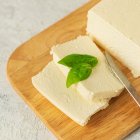 Ever Wondered How to Make Paneer at Home? Here is the Complete Guide to Take Out Soft and Creamy Paneer from Milk at Home (2021)
Ever Wondered How to Make Paneer at Home? Here is the Complete Guide to Take Out Soft and Creamy Paneer from Milk at Home (2021)
-
 Want More Tantalizing Breakfast Ideas? Here are 6 Scrumptious Egg Recipes for Breakfast That Will Make You Want to Eat Eggs All Day (2020)
Want More Tantalizing Breakfast Ideas? Here are 6 Scrumptious Egg Recipes for Breakfast That Will Make You Want to Eat Eggs All Day (2020)
-
 How to Increase Weight: Foods to Include in Your Diet for Your Weight Gain Journey + Tips for Gaining Weight (2020)
How to Increase Weight: Foods to Include in Your Diet for Your Weight Gain Journey + Tips for Gaining Weight (2020)
What is Kombucha
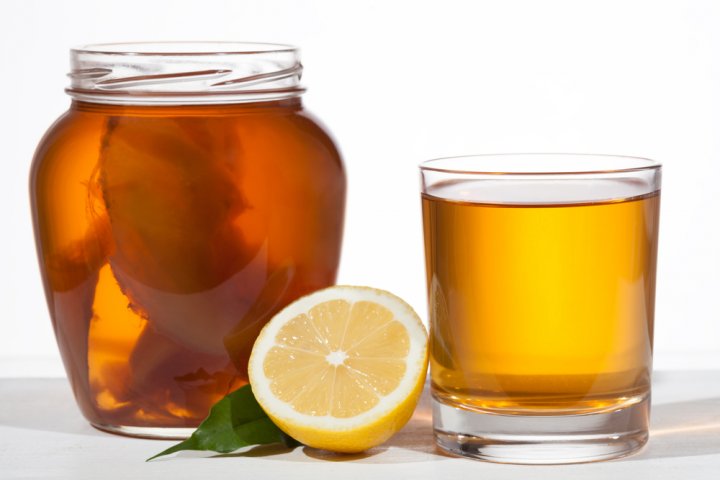
Every now and then a slew of new food discoveries join the growing lexicon of superfoods, or foods that are so healthful and healing they put all the rest to shame. Some may be new finds, other have been around a few centuries, like kombucha. If you follow health trends or love the drink you're probably reading this with a knowing smile, or a slight grimace if you've tried the stuff but hated how it smelled or tasted—people tend to have strong reactions to it and for many it's an acquired taste. But before we get into further details, for the uninitiated, kombucha is a fermented tea drink that is said to be rich in probiotics and therefore really good for you. It involves sweetened brewed tea, a culture of yeast and bacteria (otherwise known as SCOBY) and some time. The result is a tart to acidic beverage that gives off a sweet and vinegary aroma.
It's been brewed and consumed for several hundreds of years, and though it's exact origin is cloudy, the common concensus is it was first made in China or Japan. Many commercial brands peg it's origin to the Qin dynasty in China where it was created as a digestive aid all the way back in 221 B.C. From there is spread to places like Russia and parts of Europe, where it's called kvass, Siberia, Tibet, Japan, Nepal and even India.
The beverage may have made it's way to the sub-continent in earlier times but there doesn't seem to be any record of. It wasn't till a few years ago that awareness about it started to grow in India. What started as home projects started by people who had encountered kombucha on their travels, or through people they knew has now given rise to a few but dedicated brands that offer this drink.
What About Japanese Kombu Cha Made from Seaweed?
Did you know the name kombucha is actually Japanese, and that it literally translates to 'kombu kelp tea', or tea made from kombu kelp, a seaweed which has umami flavours and is rich in minerals. In fact in Japan if you asked for kombucha, you'd get the mild brown brew made from kombu kelp, which is sometimes mixed with green tea. Kombu seaweed is dried, cut into strips or made into a powder, these are the two versions most used. To make the tea, hot water is poured over strips or powder, steeped, and a pinch of salt added before drinking. Some like to also flavour it with a dash of soy sauce, and others prefer making it with a fermented kombu.
There's a massive difference between the yeasted, fermented kombucha that the Western world knows and the kelp tea that is drunk in Japan. But the former is becoming increasingly popular in the West and has been reported in the Japanese media with mild amusement—Japan Times has called 'US kombucha' smelly and notes the lack of the key ingredient, kelp.
How did this happen, how did two completely different beverages with one name originate in a similar region? The Western version of kombucha isn't unheard of in Japan, only they know it as 'mushroom red tea' because it is cultured using yeasts and the SCOBY used to make sour kombucha looks like a mushroom atop the brewing liquid. One theory suggests that this SCOBY resembles a gelatinous seaweed which gave rise to it being referred to as kombucha.
Both have interesting flavours, though one is sweet and sour and the other umani, and both have significant health benefits. Try both and see which you prefer, though now you know to be careful what to call each depending on which part of the world you're in!
Health Benefits of Fermented Kombucha
For the sake of avoiding confusion, we'll refer to the acidic, fermented beverage as kombucha, and the kelp tea as Japanese kombucha. Let's begin with the former which has steadily garnered a large following due to it's innumerable health benefits. Though there have been claims it can treat anything from high cholestrol to cancer, there isn't a lot of research which can back these claims, largely due to the fact that it hasn't been researched all that much. As with any food, consume in moderation and have realistic expectations; a well-balanced diet, excercise and an overall attention to health will achieve the results you want, rather than relying on a few 'miracle foods'.
Writer, entrepreneur Isha Singh Sawhney
I drink kombucha every other day or everyday. I love the ginger flavour. It really is my all time favourite.
Rich in Probiotics Which Promote Gut Health
Probiotics have been getting a lot of attention in recent years and have been linked to not just digestion and gut health but also anxiety, heart health and much more. What exactly are probiotics? The dictionary defines a probiotic as a microorganism introduced into the body for its beneficial qualities.
Our gut, and indeed much of our entire physical bodies is host to a massive number of microorganisms. This may seem like terrible news to germophobes but these are infact beneficial to us. The human body is like an ecosystem comprising of a variety of microorganisms and we need theme just as much as they need us. In the gut they are responsible for helping in the breakdown of food and absorption of nutrients.
If you're still in doubt, think of some of the traditional foods that we consume: curd and pickles to name a few. These have been fermented or cured and we know they are good for us. Likewise, kombucha is fermented using a colony of yeasts and bacteria which also promote gut health, improve digestion, reduce blating and symptoms of irritable bowel syndrome.
Can Help Build Immunity and Prevent You From Getting Sick
The ingredients as well as the fermentation process of kombucha enrich it with certain vitamins and substances that can boost your immunity and help you to fall sick less often. Vitamin C controls inflammation, the probiotics or healthy bacteria actually kill harmful bacteria which in turn prevents infection, acetic acid which gives it the vinegar like smell and flavour also kills harmful microorganisms, gluconic acid binds with toxins in the body and helps expels them, glucaric acid enhances and aids the liver's ability to remove toxins, and it's ability to increase metabolism helps you fight obesity, which has many benefits of it's own.
If that were not all, your mood and mental health can also benefit. Gut health has been linked to mental health but kombucha also has plenty of B vitamins like B1, B6 and B12 which play a big role in the production of cortisol, the body's natural mood enhancer and stress-relieving hormone. A healthy mind and body are both as important.
Good Substitute for Fizzy Drinks
All other health benefits aside, if you simply like the taste of this slightly vinegary drink, it can be a great substitute for sugar laden colas and fizzy drinks because it is naturally fizzy. The yeasts present in the drink cause a natural carbonation to occur, and though it may not be as strongly fizzy as other carbonated drinks, it can still be enough for those who like the taste of bubbly drinks. Although some commercial brands incorporate additional carbonation to make it more fizzy.
Sugar is an essential part of this srink as without it the yeasts and bacteria will not have food to grow, but because they are eating a significant amount of the sugar, there is little left for you. Just the way curd gets sour the longer it's left to ferment, the microorganisms in kombucha will also continue eating the sugar as long as they can access it, which is why if left unrefrigerated too long, it can taste sourer than you expected. When brewing it yourself you can choose how long to ferment it, depending on whether you prefer sweet or a more tangy flavour.
Other Health Benefits Associated with Fermented Kombucha
There are a host of benefits that come from drinking kombucha, and while some of them have been researched, a lot of it is anecdotal. Which does not necessarily mean that these are false claims, because science hasn't yet found explanations for everything. As the drink becomes more popular, perhaps more research will be carried out.
Health elixir, a delicious tart beverage, or a smelly drink with sketchy claims of health, whatever your views of kombucha are, it is a drink that traces it's roots to ancient times and it cannot be for nothing that it's still around. The Chinese did call it the drink of immortality and health, and there are even stories of how the conquering armies of Genghis Khan marched carrying a vinegary drink in their drinking pouches, a drink whose description closely resembles kombucha.
- Contains antioxidants that can prevent cells from damage: kombucha can be made with black and green tea and has the benefits that are associated with these teas. Antioxidants like polyphenols found in tea, but more so in green tea, have been shown to increase metabolism which in turn leads to an increase in how many calories you burn, fat loss, lowering of bad cholesterol, and even stabilization of blood sugar levels. Antioxidants protect your cells from damage caused by free radicals, substances that are naturally created as a by-product by the body and which can cause damage to cells if left in the body.
- Can provide relief from arthritic pain: the body produces hyaluronic acid to protect cartilage and also to prevent and reduce joint pain. To do so it needs glucosamine, which kombucha contains, which can help in preventing arthritis or at least reduce symptoms.
- May lower triglycerides and promote heart health: although studies on humans haven't yet been carried out, research on animals have shown kombucha can lower LDL cholesterol, known as the bad cholesterol and increase HDL cholesterol, the beneficial cholesterol. The healthier balance of cholesterol will help maintain a healthy heart.
- Increase in energy levels: Tea, even green tea, naturally contains caffeine which has been proven to enhance energy levels. Though the percentage of caffeine is significantly lower than what is present in coffee, the fermentation process further lowers it because the yeasts and bacteria consume it. So you get the benefits of caffeine thought the smaller dose, combined with B vitamins and small quantities of iron can drastically reduce the crash that follows the high of lots of caffeine.
Japanese Kombu Cha is Highly Nutritious Too!
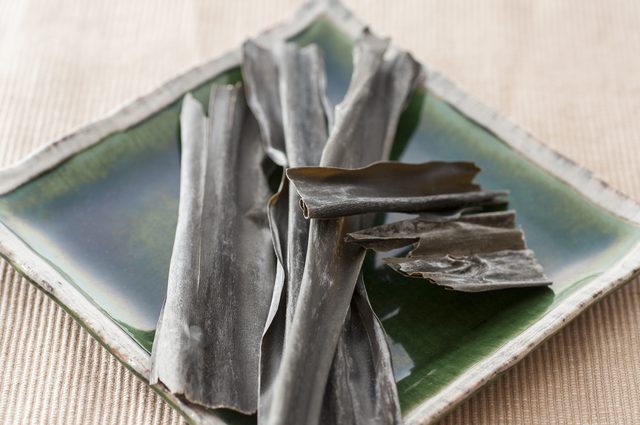
Kombu is a seaweed, an edible kelp that comes from sea forests and absorb a vast amount of nutrients from the sea. Among other things, these seaweeds are known for their high iodine content which improves thyroid function and is one of the staples of Japanese diet that has been attributed for their long life expentancy. In fact kombu has amongst the highest iodine content amng seaweeds.
It has a high mineral content and is rich in phosphorus, potassium, selenium, calcium, iron, magnesium, manganese, copper, molybdenum, vanadium and zinc. It's also loaded with fiber making it a good laxative. While it is a good source of multiple minerals, apart from iodine, it doesn't contain enough to be a primary source of these but can be a good dietary supplement.
The amino acids present in this kelp aid digestion by helping to break down heavy starches. Beans such as soy are also a staple in the Japanese diet and by making it easier for the body to digest them, kombu can lower the bloating effect of beans and legumes. Like it's fermented cousin kombucha, there isn't too much research, and especially not in humans to back some of the other claims, but kombu is said to be cancer fighting, can prevent anemia and even reduces the inflammation from rheumatoid arthritis.
How to Make Kombucha - Fermented, Fizzy and From Kelp!
Sweet and sour, tongue tingling and refreshing, or hot and umami flavoured, whatever kind of kombucha you fancy, here's how to make each of them!
Japanese Kombu Cha
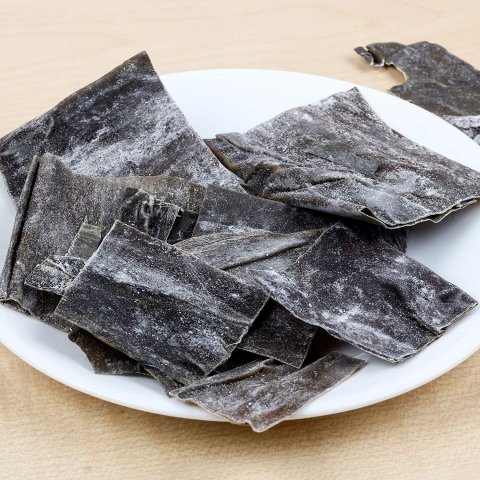
Seaweed is an important ingredient in Japanese cuisine and it's hardly surprising that it's used to make certain teas as well. If you are using kombu strips to make the tea, you will notice a white, powdery substance on the surface of the strips. This is the substance which dissolves in the water and gives the tea it's distinct umami flavour, so refrain from washing it off!
Kombu Cha
- What you need:
- Kombu seaweed, strips or powdered
- Water
- Salt to taste
- How to make it:
- Bring water to a boil then turn off the heat and let the bubbling subside. While the water heats, put a few strips of kombu or a teaspoon of the powder, if you're using, in a cup. If the strips are very big, tear them into smaller pieces. When the water is ready, pour it over the seaweed in your cup and let it steep for a few minutes till the tea reaches your desired strength. Add a pinch of salt for flavour before drinking.
- The seaweed powder and strips can both be consumed as kombu is an ingredient for food as well. Like any other kind of tea, you will have to try different quantities of seaweed and steeping time to find one you like best.
Fermented Kombucha or Fungus Tea
Most Indians set curd at home, make pickles, and aren't alien to the world of fermented foods. You have to remember that kombucha follows similar principles. There's a core ingredient - sweetened tea, a culture with living microorganisms that is introduced to it (SCOBY), and these transform it into something different - kombucha. So follow this recipe but also rely on your own instincts on whether something smells off or tastes weird.
The process itself is rather simple, and as much as you'd want to fuss over it, the best thing you can do is set it up and forget about it for a few days. The same way your pot of milk with curd starter doesn't like being jostled around and prefers to be left alone to do it's thing!
Kombucha from SCOBY
Ingredients:
- 2 liters filtered water
- 3 teabags or 1 tblsp of loose tea
- 1/2 cup sugar
- 1 cups of kombucha (250 ml)
- 1 SCOBY
What else you will need:
- A large jar that can comfortably hold all of the above
- A clean kitchen napkin
- Rubberbands or a piece of string to secure it
- Plastic straw
- Swingtop bottles (or with tightly closing lids) to store your ready kombucha
- A plastic funnel
- A dash of patience
Let's brew kombucha!
- Make the tea: transfer half the water (1 liter) into a pot, and bring it to a boil. Turn off the heat and once bubbles subside, add the teabags or loose tea. Steep for 10-12 minutes. Remove the tea bags or strain the tea into your brewing jar. Stir in the sugar till it dissolves completely. Add the remaining 1 liter water to cool down the tea.
- The tea must be cooled down to room temperature before you proceed with the next step. This is of utmost importance because if it is too warm, the SCOBY will die and will never brew kombucha again.
- Once the tea is cool to the touch (dip a clean finger in it to check), pour in the kombucha, then gently place the SCOBY on top. It may stay on the surface or sink, that doesn't matter.
- Place the napkin on top of the jar and secure it with a rubber band or piece of string. Place the jar in a clean, dry spot, away from draughts and direct sunlight (inside a clean cupboard will do).
- As with any ferment, temperature plays a key role. So if it's cool at the moment, start checking your brew after 7 days; if you're in a warm zone, you may want to start on day 4.
- Carefully remove the cloth from on top. If you're using a clear jar you would have noticed the growth of a new SCOBY on top, sealing the liquid in. Be careful to disturb this layer as little as you can. Insert your straw from a side and take a small sip to taste your kombucha.
- The flavour is completely up to you. If you like the taste, it's ready for bottling, if it's still too sweet for you, let it continue brewing. Taste it everyday after this till it acquires the flavour you want. It will continue to ferment very slowly in the fridge, so take note of that. However, if your brew is too sour, it has over fermented. It is still safe to drink but if it tastes more like vinegar than kombucha, either discard it, use it as vinegar in dressings. You can try to rescue it by diluting it with more sweet tea or juice.
- When it's ready for bottling, carefully remove the SCOBY. You may want to remove a cup of the liquid to use as starter for the next batch, save this with the SCOBY. Use the funnel to pour it into your bottles. Drink right away or chill in the fridge. From this point on it must be kept refrigerated.
NOTES:
Water: use filtered water, not mineral water as the extra minerals can interferes with the culture. If your tap water is safe to drink and that's what you're using, it may have been chlorinated - let it stand in a covered vessel for about a day and the chlorine will evaporate.
Tea: experiment with teas as you gain confidence, but caffeine is also food for the SCOBY. Tea has very little compared to coffee but it's enough. So skip the decaf teas.
Sugar: it is food for the SCOBY so sugar alternatives like stevia or sugar free is not an option - your culture will starve. Plain white sugar will do, organic is preferable but not necessary. Use other types if you want but take note of how they compare to plain sugar in levels of sweeteness and adjust accordingly. Jaggery adds a nice caramel note but again, it has minerals which may affect the SCOBY, so introduce it in small amounts.
Container: glass and food grade ceramics and porcelain are fine, and so is wood and high grade stainless steel. But no other metal. Plastics are best avoided but you can use a plastic straw and funnel as these make brief contact.
Cloth for covering: use a thick cloth or one with a tight weave to ensure no dust or tiny insects get in. Thin muslins will not do the job.
Storage bottles: must be strong, thick glass that can withstand the pressure that builds up inside, even in the fridge.
Too Much Effort? Buy Ready to Drink Kombucha!
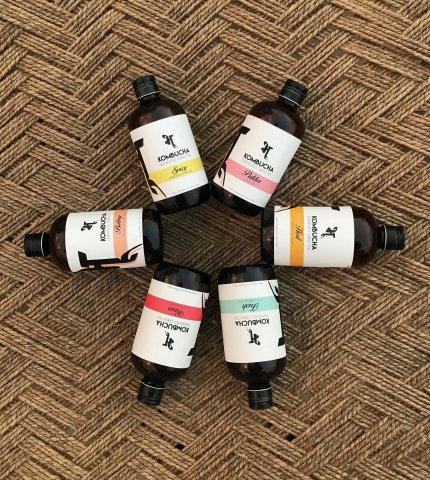
Intrigued by kombucha but want a taste without having to brew it? We won't say it's available everywhere, but the pricey gourmet store at the other end of the city (or down the road) may surprise you. Make inquiries, you may run across someone who is brewing it at home.
Here's where you can buy or order kombucha (available only in select cities):
- Bombucha - Mumbai only
- Atmosphere - Delhi and NCR only
- Bhu Kombucha - Delhi only. Visit their Facebook page or place orders at +91 99990 64200
- CommBucha - currently available at Mumbai, Pune and Bangalore only
- Happy Booch - Mumbai only
- Zen Tiger Kombucha - Mumbai only. Reach them through Instagram. Also available at Foodhall, Palladium Mall, Mumbai
- Khukrain's Kombucha - Mumbai only, place orders through their Instagram
- Abha's Probiotics - Chennai. The store offers a wide range of health products.
- Ka Kombucha - Chennai
- Vegan Heat - Bangalore. Order a glass to go with your burger or pizza. Online orders and home delivery is available too.
-
 Embark on a Journey to Discover India. Your Guide to the Best Places to Visit in India in Every Season (2020)
Embark on a Journey to Discover India. Your Guide to the Best Places to Visit in India in Every Season (2020)
-
 Lose Yourself in the Wild Beauty of River Ganges the Right Way by Camping at Rishikesh: 10 Campsites for an Adventurous Camping Experience!
Lose Yourself in the Wild Beauty of River Ganges the Right Way by Camping at Rishikesh: 10 Campsites for an Adventurous Camping Experience!
-
 Planning to Visit India's Silicon Valley? Fun Things to Do in Bangalore to Get the True Flavour of this Happening City (2020)
Planning to Visit India's Silicon Valley? Fun Things to Do in Bangalore to Get the True Flavour of this Happening City (2020)
-
 Booze, Beaches & Nightlife, But There's One More Thing for Which Goa is Famous for(2020): Must-Try Water Sports in Goa for a Thrilling Experience! (2020)
Booze, Beaches & Nightlife, But There's One More Thing for Which Goa is Famous for(2020): Must-Try Water Sports in Goa for a Thrilling Experience! (2020)
-
 10 Best Restaurants in Bandra: from Fine Dining to Hipster Cafes and Budget Eats, These are the Places You Absolutely Need to Eat At in 2019!
10 Best Restaurants in Bandra: from Fine Dining to Hipster Cafes and Budget Eats, These are the Places You Absolutely Need to Eat At in 2019!
Maintain a balanced diet and have everything in moderation
There is no miracle food, or drink, that will eliminate all your health problems. Food, in all it's forms and flavours is nourishment for your body, the fuel that makes it work and keeps things working right, and to make sure you stay healthy, a balance is essential. Supplement it with exercise and meditation because a healthy mind and body are necessary to work in tandem, one isn't independent of the other. And finally, listen to your body. Every person is unique and every kind of food may not suit you.

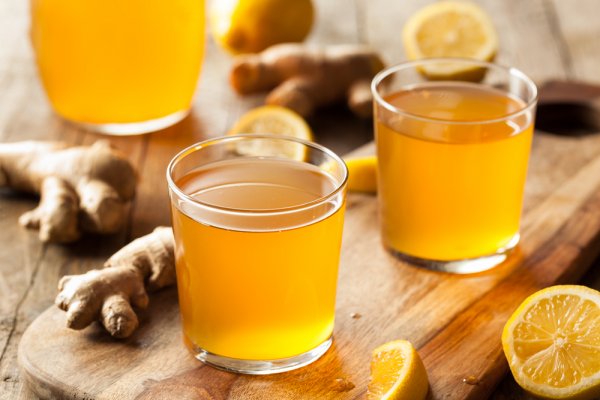
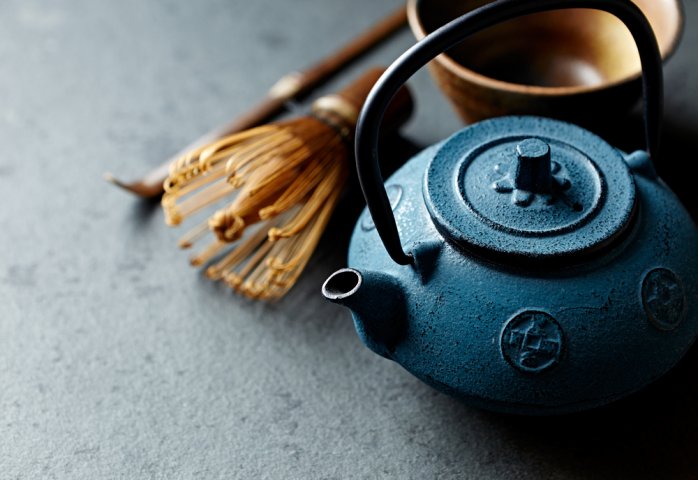

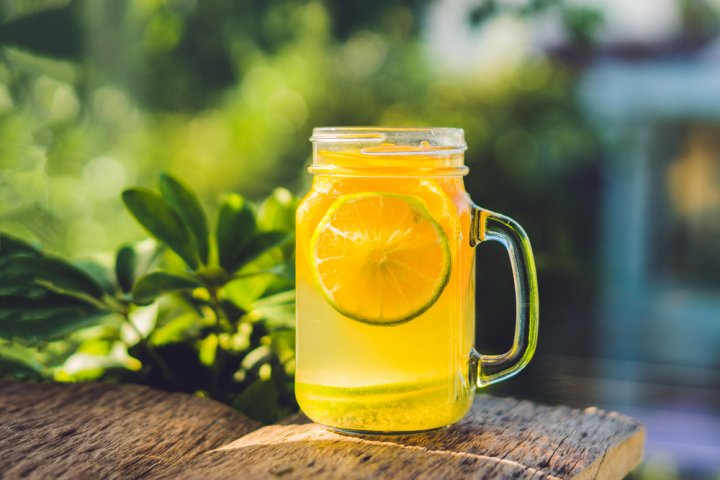
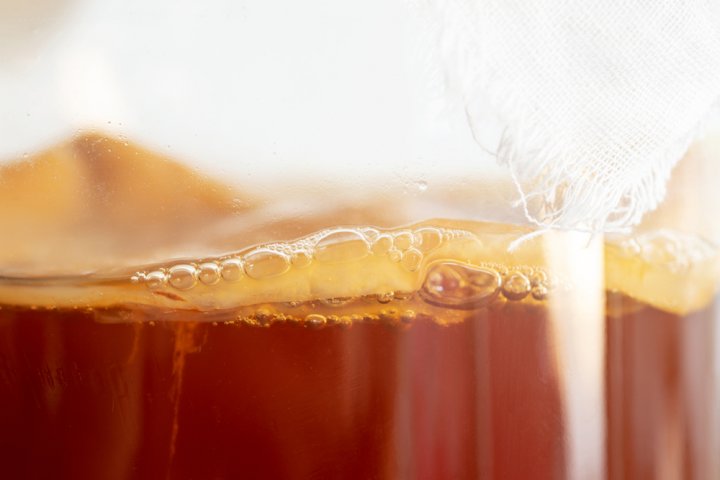

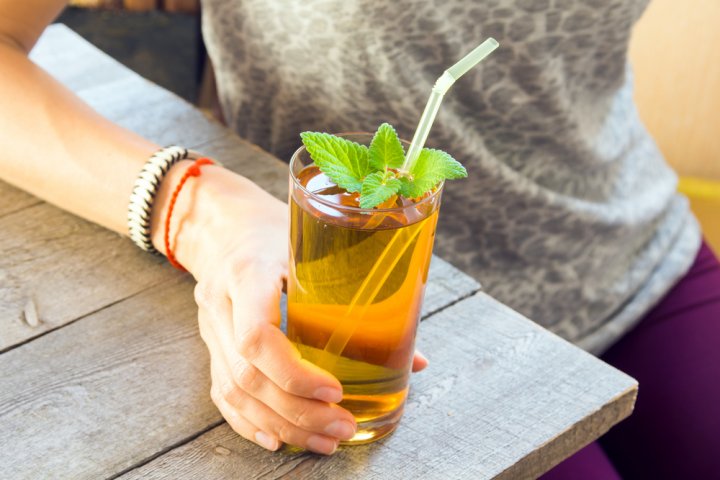

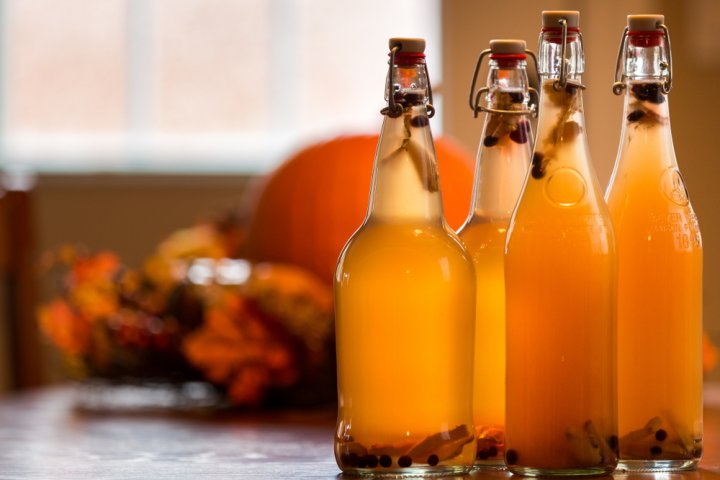

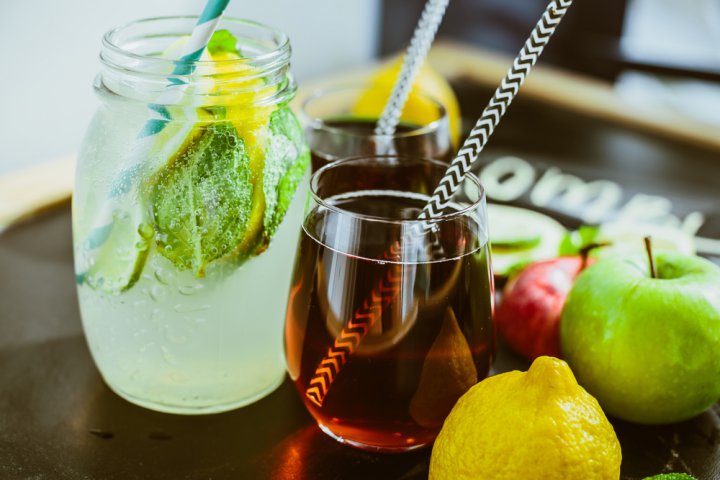
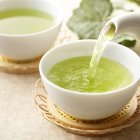


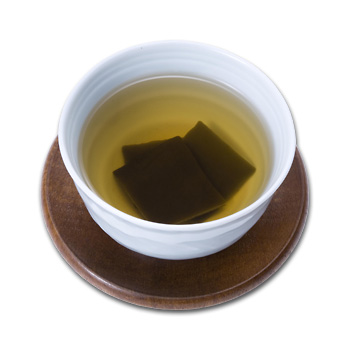
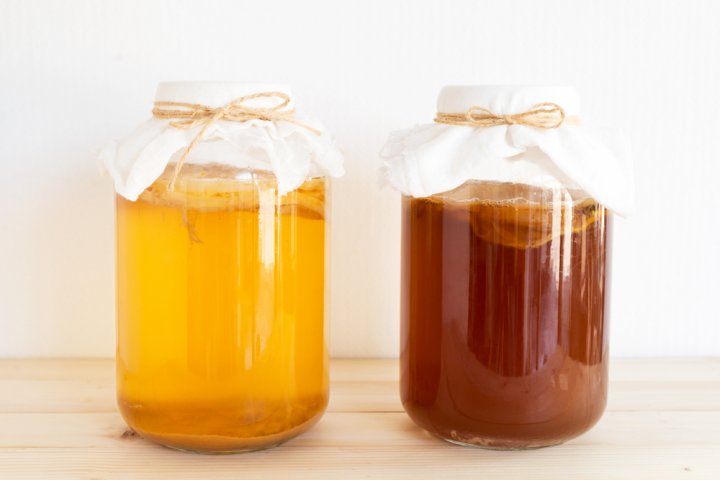
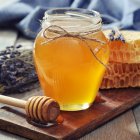
 Highlight the Best Facets of Your Incomparable Beauty: Discover the Best Face Highlighter Currently Available in India and Everything You Need to Know About Using Face Highlighters for Maximum Effect (2023)
Highlight the Best Facets of Your Incomparable Beauty: Discover the Best Face Highlighter Currently Available in India and Everything You Need to Know About Using Face Highlighters for Maximum Effect (2023)
 Forget the Blemishes and Get that Picture Perfect Flawless Radiance on Your Face: Check out the Best Foundations for Oily Skin Currently Available in India and Everything You Need to Know About Makeup Foundations (2023)
Forget the Blemishes and Get that Picture Perfect Flawless Radiance on Your Face: Check out the Best Foundations for Oily Skin Currently Available in India and Everything You Need to Know About Makeup Foundations (2023)
 Make Your Presence Felt Wherever You Go: Discover the Best Perfumes Under 2000 for Both Men and Women to Announce Your Arrival and Make Any Occasion Memorable (2023)
Make Your Presence Felt Wherever You Go: Discover the Best Perfumes Under 2000 for Both Men and Women to Announce Your Arrival and Make Any Occasion Memorable (2023)
 Protect Your Oily Skin from the Harmful Rays of the Sun: Discover the Best Gel Based Sunscreens for Oily Skin and Everything You Need to Know Before Buying One (2023)
Protect Your Oily Skin from the Harmful Rays of the Sun: Discover the Best Gel Based Sunscreens for Oily Skin and Everything You Need to Know Before Buying One (2023)
 Minor Blemishes and Wrinkles Affecting Your Confidence? Check out the Best BB Creams to Conceal Your Worries and Nourish Your Skin to Restore the Healthy, Radiant and Glowing Complexion Back Again (2023)
Minor Blemishes and Wrinkles Affecting Your Confidence? Check out the Best BB Creams to Conceal Your Worries and Nourish Your Skin to Restore the Healthy, Radiant and Glowing Complexion Back Again (2023)

Writer, entrepreneur Isha Singh Sawhney